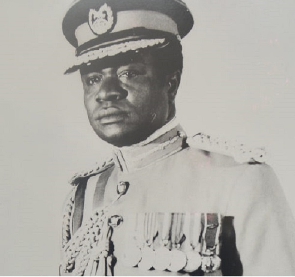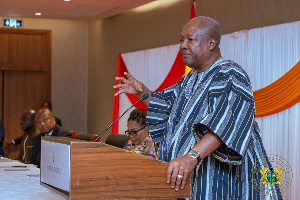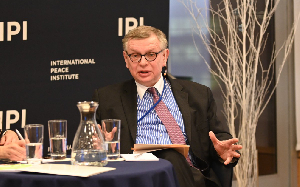In January 1972, Ignatius Kutu Acheampong led a bloodless coup d'état to overthrow the democratically elected government of the Progress Party and its leader, Dr. Kofi Abrefa Busia.
The event led to him becoming the Head of State and Chairman of the National Redemption Council (NRC), which was later transformed into the Supreme Military Council (SMC) on October 9 1975, with Colonel Acheampong (promoted to General) as its chairman.
The era of General Acheampong has been dubbed as effective but at the same time oppressive by some historians and citizens.
Under his regime, Ghana changed from driving on the left to right-hand traffic dubbed, ‘Operation Keep Right’, there was the famous ‘Operation Feed Yourself’ initiative and the repudiation of Ghana’s foreign debts with the ‘yentua’ slogan.
While these took place, plans to oust him were in motion as members of the Supreme Military Council were plotting to remove him from power in 1978.
Acheampong was however executed a year after in 1979 but prior to this, he was forced to resign from the position leading to a chain effect in the military hierarchy.
A newspaper clipping from July 6, 1978 sighted by GhanaWeb shows how the resignation sparked significant changes in the Ghana Armed Forces where Acheampong once served as General of the Army.
With the headline; ‘Kutu Resigns, Akuffo Is New Head of State’, came with positional changes and the associated names within the Ghana Army and SMC.
First was the Lt. General F.W.K Akuffo, Chief of Defence Staff who assumed the role as Chairman of the Supreme Military Council. Next in line was Army Commander, Major General R.E.A Kotei who was promoted to serve as Chief of Defence Staff.
The other promotion was given to Brigadier N.A. Odartey Wellington who was promoted to the rank of Major General and head of the Army Command.
The leadership of the Supreme Military Council was not left out as changes erupted among its members.
These included the position of Inspector General of Police who was named in the person of Mr Ernest Ako, Rear Admiral J.K Amedume was named as Navy Commander, Major General E.K Utuka was named as Border Guard Commander, Air Vice Marshall G.Y Boakye was also named as Air Force Commander while Major General N.A Odartey Wellington was named as Army Commander.
In addition to the revised changes in the SMC, Colonel J.K Amoah was appointed as Commander of the First Infantry Brigade and member of the NRC while Chief of Staff of the Ministry of Defence was appointed in the person of Brigadier Nunoo Mensah who served as member of the NRC.
See the newspaper clippings from July 6, 1978 below:

MA/DA
General News of Sunday, 16 July 2023
Source: www.ghanaweb.com













